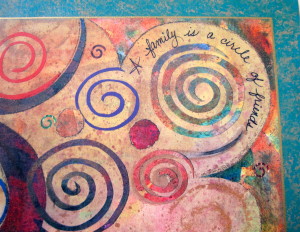I’ve been following the “Ban Bossy” and “End the R-Word” public campaigns over these past few weeks, and it’s got me thinking (even more than usual) about the words and judgments imposed upon us by others. This is not a new topic of conversation, but it is certainly one worth revisiting from generation to generation.I must admit that this media blitz stepped on an old raw nerve of mine, taking me right back to Mr. Wilson’s class in 5th grade.
I am holding “bossy” in one hand and “sissy” in the other, two gender-laden words usually wielded as weapons or threats. In addition, he “n-word” and the “r-word” are both so vitriolic that we use these euphemisms rather than speak the actual words aloud. Anyone who has felt the sting and shame of name-calling, whether from peers or adult authority figures, knows their wounding power and recognizes when those old scars ache, even years later, like a creaky knee in winter.
And what about the names we call ourselves and the shame evoked by words of self-loathing?
Many political activist movements and communities have reclaimed words that have previously been tools of hatred. While it is wildly oversimplistic to simply say “ban bossy,” or “end the r-word,” it is a searing reminder of the power of words and their capacity to wound or transform our lives.

